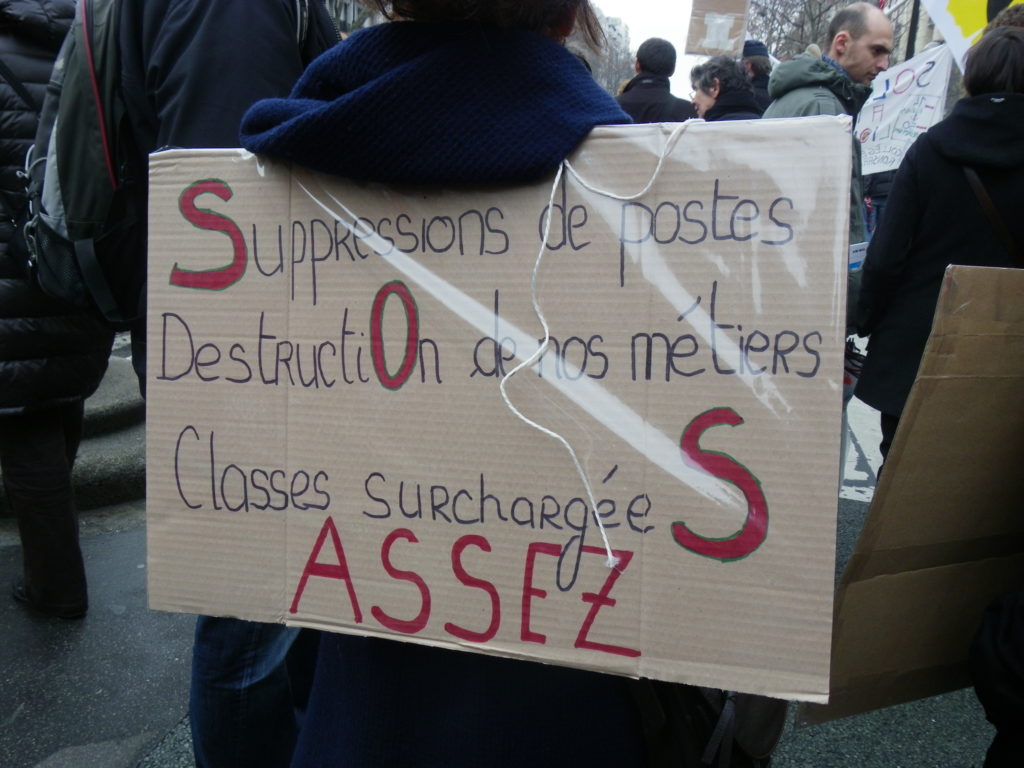France: education trade unions prepared to strike for decent salaries and quality learning environments
12 January 2021
The COVID 19 outbreak is a public health crisis quite different than anything Europe has faced for many years. As education personnel and their trade unions grapple with the outbreak, we are supporting and informing member organisations in any way we can.
- Long COVID-19: What challenges for education trade unions across Europe?
- ETUCE study on Education Trade Unions in Europe facing COVID-19 Omicron Variant
- Well-being of academics and researchers in the Netherlands: who did COVID-19 affect the most?
- Belgium: Education is essential! Truly?
- Education and Training Monitor 2021 sheds light on well-being during COVID-19
- Gender segregation in education: setback to achieving gender equality in EU
- Latvia: the impact of the pandemic on teachers is extremely worrying
- Education trade unions building capacity for renewal beyond COVID-19
- French study: the psychosocial impact of COVID-19 on researchers
- Romania: Success in the negotiations for a vaccination agreement
- UK Study found stress and anxiety of academics above national average during COVID-19 pandemic
- New OECD data outlines the effect of the COVID-19 pandemic on the teaching profession
- Transmission of COVID-19 in education: the scenario for the next school year
- New NEU information tool to encourage critical-thinking on COVID-19 vaccines
- Hungarian teachers’ opinion on the reopening of schools

Teachers and other education personnel across Europe have demonstrated unwavering commitment and held together the education system throughout the COVID-19 crisis. The French government failed to implement the demands of education trade unions, pushing most of them to call for a nationwide strike on 26 January 2021.
Despite the French Ministry of Education’s announcement of a “historic salary revaluation”, the 2021 education budget will not provide for salary increases for 70% of education personnel and excludes special education assistance. ETUCE member organisations in France also highlight its failure to make up for years of real salary stagnation or decrease.
Education trade unions are denouncing the unpreparedness of the government during the sanitary crisis. Since schools reopened after the winter holidays, no specific measure has been put in place to guarantee safety for all in schools. ETUCE member organisations regret that few schools have mass testing programmes in place and denounce the inoperability of classroom airing in cold weather.
In addition, education trade unions are requesting clarity on the government’s vaccination plan and demand that teachers be given priority access to vaccine, after those most at risk in the population and healthcare workers. With the education sector facing the crisis of a whole generation, a coalition of education trade unions have called for a strike on 26 January 2021.
Commenting on these developments, ETUCE European Director, Susan Flocken, stated: “We strongly support our member organisations in France in their actions to improve the working conditions and protect the rights and well-being of teachers and other education personnel across the country. It is clear that hybrid teaching has been leading to an increased workload for teachers, reinforced inequalities among students, and negatively impacted the quality of teaching. Hiring more education personnel to reduce class sizes, as demanded by education trade unions, along with ensuring improved health and safety measures in schools, remains the way forward for the recovery of the education system from this crisis and should be implemented by governments. This requires increased and sustained public investment in education.”
Looking ahead, and as Europe undergoes a new wave of COVID-19 infections, the ETUCE reasserts its support of its member organisations, tirelessly working to ensure safe, quality, and inclusive education. As we continue to struggle in the face of this crisis, ETUCE calls on governments to strive for healthy and inclusive recovery, prioritising the education sector as outlined in the ETUCE statement The Road to Recovery from the COVID-19 Crisis